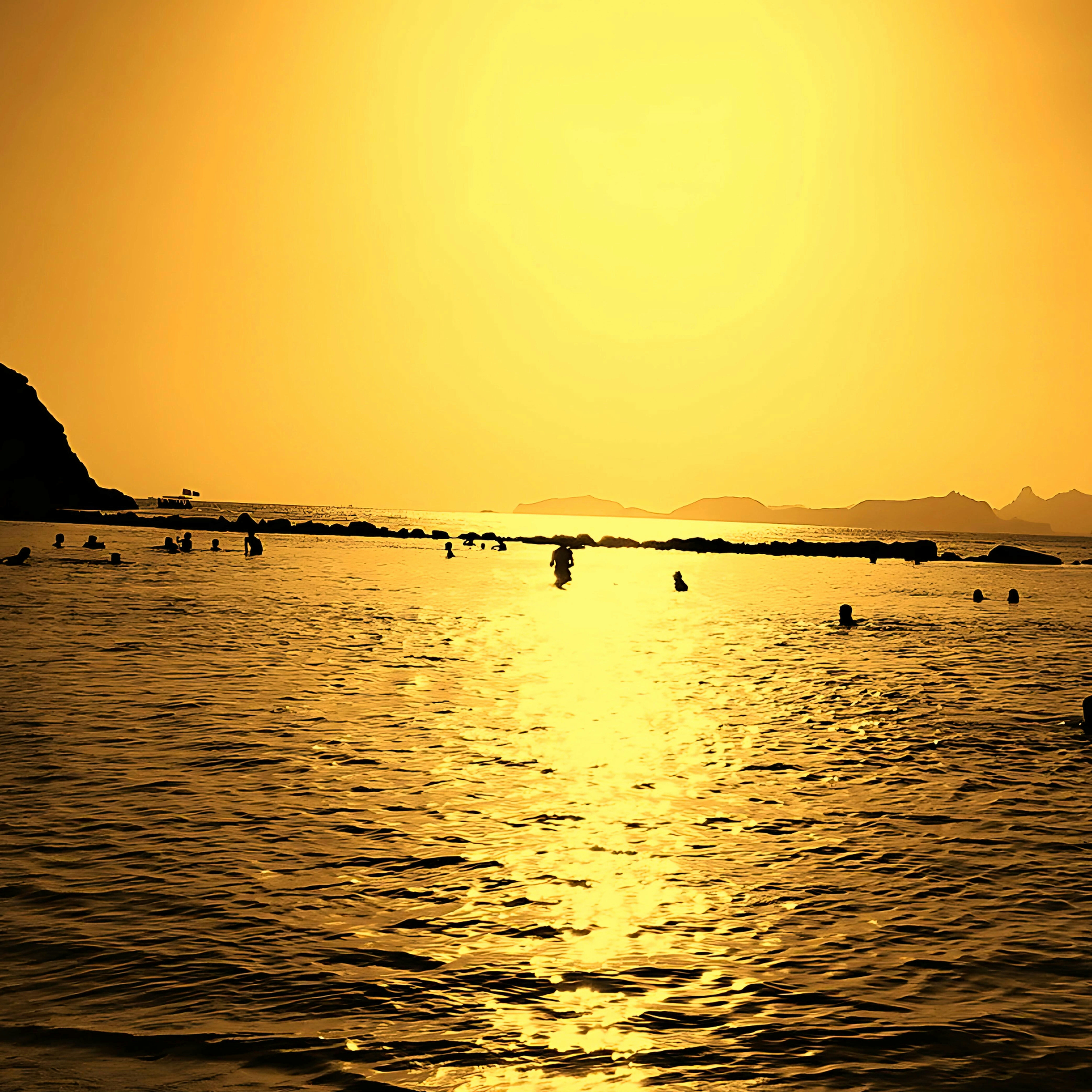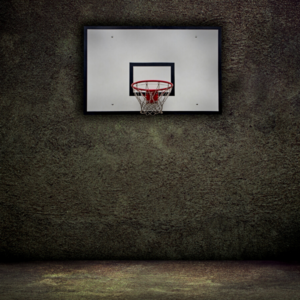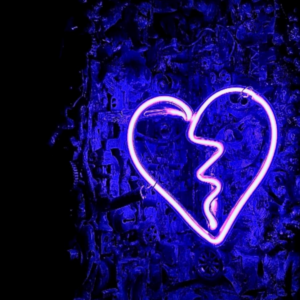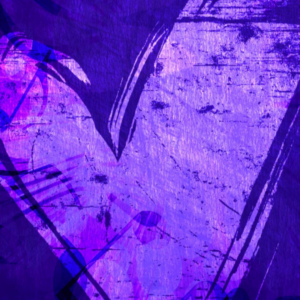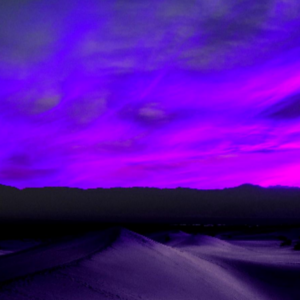The Hand
At eleven o’clock, with my family tucked fast asleep, I tip-toed to the door and tied the last knot on my combat boot, knots that reached my knees.
Rounding the corner, I collided with Baba. “Where do you think you’re going this late?” he asked, rolling the checkered foutah tighter around his waist.
Crap. Why wasn’t he at his night shift? He stood there smelling sort of biblical, like incense and roasted flesh, picking animal blood and bone shards from his fingernails. “This is your mom’s fault,” he continued. “Letting you parade around the boroughs like a daughter of the street. The night isn’t for girls.”
I reached for the doorknob. Baba cinched his fist around my wrist. My bones rubbed like flint. He never realized his strength, or maybe he overestimated mine—sometimes I was his son, and sometimes his daughter, but never both at the same time.
“Why aren’t you taking off your shoes? Are you thinking of ignoring me?” His voice rose, rankled enough to wake the house.
“You can’t—”
He rushed across the foyer faster than I could track and smacked me so hard, my lip split. “Na3l* aboosh,” he spat, dissing himself. Your dad never raised you. Using Arabic to call me by his own name and beat himself out of me. Beating everything into belief.
I ran upstairs and locked my door. Placed my ear to the crack and listened for his footsteps padding into the kitchen. When I was sure he wasn’t going to give chase, I dropped onto my bed and touched the imperceptible nick on the wall from a knife Baba had hurled an inch from my head, exploding the drywall. There, among the other dents and marks. Famous.
What had I said to him? What provocation? I couldn’t remember now. Ma clucking a little at the sight of it, before going about her business again. Rizwana picking up the knife and slinging it into the sink to wash.
You were only dreaming Jide Loza had told me, letting me into the candy cabinet. The nick was sanded and patched when I returned to my room, so I thought I’d imagined it.
Why had I actually started boxing? Who was my first bully? My first god? Was I fated to hand down violence?
What I wouldn’t give to exchange my own dad for some kindly sap out of the sitcom tradition. There was a time when Baba had been gentle. My earliest memory was of him floating me out of the backseat and into the quilt of his arms, feeling that nowhere kind of heavy mixed with his warmth.
My cheek tingled like it was filled with red ants. I supposed love lived there, in the friction. I touched it, feeling guilty for thinking about Baba hitting my face. There were many things he did. He taught me how to hold a pigeon, how to kick a ball, when to throw the first punch, how to relax and spit seeds.
Once, I detoured into the Bronx in search of Baba’s old apartment, his teenage ghost. Found instead an old woman making wudu with a crumpled Poland Springs bottle between tightly parked cars. I’d been searching for a different version of him, where he was boyish and thoughtful, lonely for a family to call his own. I wanted more than the memory of his hand, my face, this cruel physics. The times he looked as happy as he did while watching America’s Funniest Home Videos, roaring in a way I’d never seen—eyes shut and mouth open, chunks of leftover rice embedded in his molars like fillings.
My Baba the butcher and bus driver was told time and again, you don’t belong here. But he liked it better when people said your daughters have your nose, one nostril smaller than the other. If we watched it for long enough in the mirror, it warped and consumed our whole face. If we twisted it towards the right, the cartilage popped at a volume only we could hear.
I did that now, listening hard for the sound.
The Sea
“Focus,” Jide Shahd said, but I couldn’t concentrate hard enough to nail anything.
The wooden spear slipped from my grip. I stabbed the seawater again, abaya soaked to the waist. It was lukewarm, lapping my sore ankle after last night’s mishap.
Another salmon swam out of the way. I made a guttural, exasperated sound. It wasn’t that I lacked motivation. I wanted badly to be like my cousins, who became bullies during hunts, all calculated brawn. Kids who could stare down the thing, then cleave it without flinching, the bloodied blade an extension of themselves, a metallic mutation they grew in their mom’s belly.
Jide Shahd watched me from the shoreline, purple bandana blowing in the breeze like a poisonous eel. “Your sight in the water isn’t the same as it is on land. Look here. See it coming? Tighten your hold. Not too close, but not too far. Add the right weight, then focus, and…gotchya!”
She snatched the fish in a single go, spearless. It squirmed in her bare hands, scales iridescent in the bright noon sun. She could probably catch them with her mouth if she wanted.
Jide Shahd dropped it into our dinner bucket and encouraged me to try again. But when I looked into the sea, I only saw the drowning dream I had three Ramadans ago, when the water came for me and asked who are you? and I couldn’t give it my full name because I hadn’t learned it. I couldn’t whittle my hijab into a trident because I’d forgotten how.
I dropped the spear. A wave swallowed it. I imagined the sea’s giant tongue sweeping away miles of coastline, a horrific image that didn’t make me feel any better. “I’m broken,” I told Jide Shahd.
“A poet once said cracks are how light gets in everything.” I couldn’t articulate anything else after that, other than the glow of hope throbbing like a vague ache in my limbs.
I stood in the sea, simmering. A stray puppy people called by a rotating series of names swished sand with its tail each time it pawed its way to me, the shore speckled with lively citizens working and playing at its salty edges.
“Do you know a lot of fishermen?” I asked her.
“I did, but they were killed at sea. Airstrikes hit all the aid boats.”
Aden’s gentle harbor was every sailor’s dream. An expanse of azure and clear coral, shoals dotted with ships, mostly the big white sanabiq, some dragged onto the narrow beach for repairs. “What was it like, before?”
Jide Shahd smiled. “The fishing industry used to have more than half a million people, the country’s second largest export, behind oil and gas. When you looked out, you could see thousands of boats fishing in the Red Sea and the Gulf of Aden. We ate tuna, sardines, mackerel, lobster, cuttlefish, you name it.”
She broke off to buy lobsters, a luxury since the price hike for fishing tools and fuel again. “Lift them with the plastic rake and tickle their tails,” she instructed the fishmonger. “My father taught me that,” she said to me. “Pick the lobsters that flip violently and with gusto.”
The fisherman knifed the length of the lobster’s stomach, and at once I felt the dull hook and snag of a seam rip deep inside of me. He reached into another fish and loosened a mess of slick-stringed organs. “This one was a lady,” he told me, scraping peach roe from its swollen gut. “Want the eggs?”
The wall between looking and feeling was lashed. Everything became wind, gulls crying as I drowned in the gullet of the sea, everyone else severed from me, chartless in the dark. I was frightened.
“Zafirah—there, right there!” Jide Shahd cried. Another fish swam past me. Concentrate I thought, raising my hands.
I couldn’t sense the world the way she could. But sometimes I swore I saw it, in the ferns, in the fat bees, and the sea, its flatness as if pressed down by a giant’s stone. I looked past it, at the sky reflected in the water until they were one, not opened to me, just open. The wind’s cold surf boomed, drowning out every other thought and I felt it, I could feel it, I didn’t know that I was feeling it, the fish that convulsed in my—
“Got it!” I gasped.
The salmon didn’t blink when I hovered the blade’s tip near its eye. A child splashed over to me. “I’ll do it for you,” he said.
“No.” And there on my lap, I pushed the weapon into its glinting belly like a gift I was giving it. Blood spilled raw, wrestled for. Something hardened inside me, and it was nice how big it felt, how pure and intense.
Jide Shahd added my catch to the collection. “When you were little, you once asked me what’s the sea dreaming of?” She laughed. “Do you remember?”
I didn’t. Only a voice like hers responding the sea doesn’t dream, little Zafirah. It’s only dreamt of.
XXX
*Any Arabic word written with the number “3” represents the letter ayn, a sound that emits a glottal from the throat.
